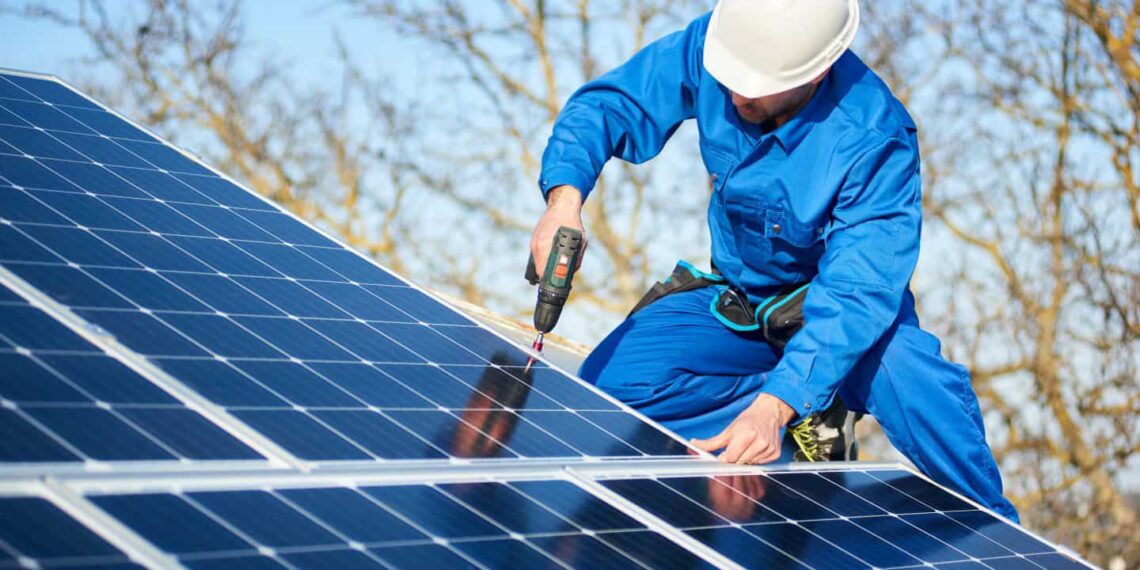Homeowners seek solar loans to pay off the solar panels they purchase over time. Others choose to lease the panels to a solar business to avoid ownership to take on less responsibility and fewer savings. This article is written to read if you need help with the right option to suit your needs.
We’ll discuss the significant distinctions between leasing and purchasing solar panels, focusing on the overall cost and the potential for savings over time.
Leasing vs Buying: Key Differences
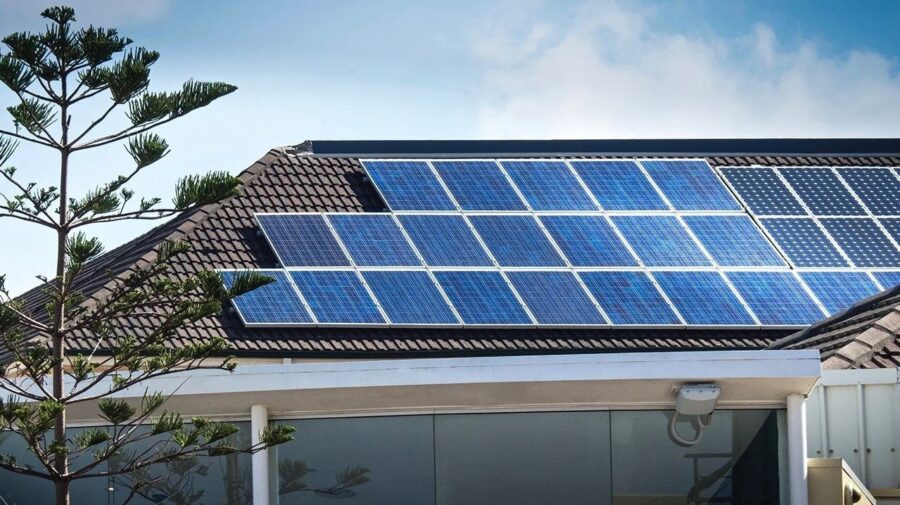
Here’s a summary of the main similarities and distinctions between leasing and buying solar panels.
Buying Solar Panels
Solar panels require an upfront investment, but they will reward you with more savings throughout the solar system. Anyone who purchases solar panels in cash or through a loan can offset the sizable initial cost using tax credits for solar, both federal and local. Credits.
Additionally, installing and purchasing solar panels can increase your house’s value and allow you to recover the bulk of the investment should you sell your house in the near future. Solar panels also enhance the appeal of your house to prospective buyers and make the process easier for selling your home in the market. The new owners will benefit from the lower electricity costs for homes with solar panels without having to worry about buying and installing them. This makes solar rooftop homes attractive to buyers who are first-time homebuyers.
Buying
- Homeowners own these panels.
- Costs that are high at the beginning
- Tax credits are available.
- Net Metering programs are readily available.
- A higher percentage of savings throughout your life
- Lower monthly energy bills
- The upkeep of the home is the responsibility of the owner.
Leasing Solar Panels
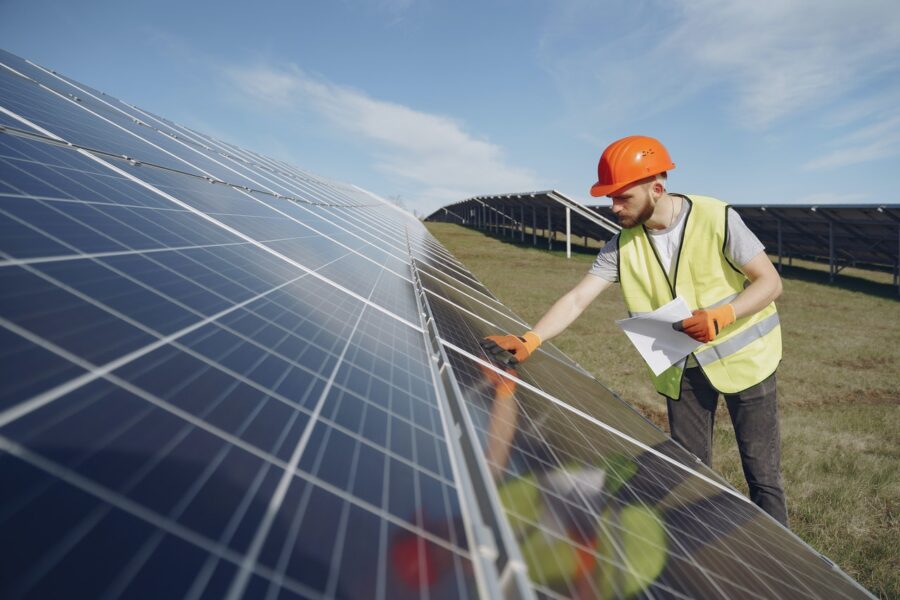
Leasing solar panels can be a method of investing in solar energy without an enormous amount of money upfront. This makes rooftop solar energy more accessible to people with limited income without sacrificing their savings over the long term.
If leasing solar panels, you don’t own them and therefore do not control the energy they generate. In addition, because the Solar panels aren’t technically part of your house, you aren’t eligible to receive solar incentives and net metering programs. As a result, you will not see an increase in your home’s value.
Leasing
- A solar leasing company owns the panels.
- Minimum cash amount not required in advance
- Not eligible for tax credits
- Ineligible for net-metering programs
- Reducing retirement savings
- Reduce your monthly energy bills
- Leasing companies are responsible for maintaining the property.
Leasing Solar Panels Cost
On average, solar panel leasing can cost between $50 to $250 per month. The cost of leasing will be determined by various factors, including your energy consumption, the quantity consumed and the size of the company you work for, the location of your office, and your credit score. Additionally, certain solar firms require a down payment. However, others provide leases with no down payment. Take these into consideration in deciding whether you should lease your solar panel.
LEASING SOLAR PANELS
- A third party is the owner of the panels.
- The initial cost is limited
- A monthly payment is anticipated.
- Can cut utility bills
BUYING SOLAR PANELS
- The owner of the panels is the Buyer. The panels.
- The initial costs are high.
- Can you repay or repay the investment
- Reduce utility costs
Best Ways to Pay for Your Panels
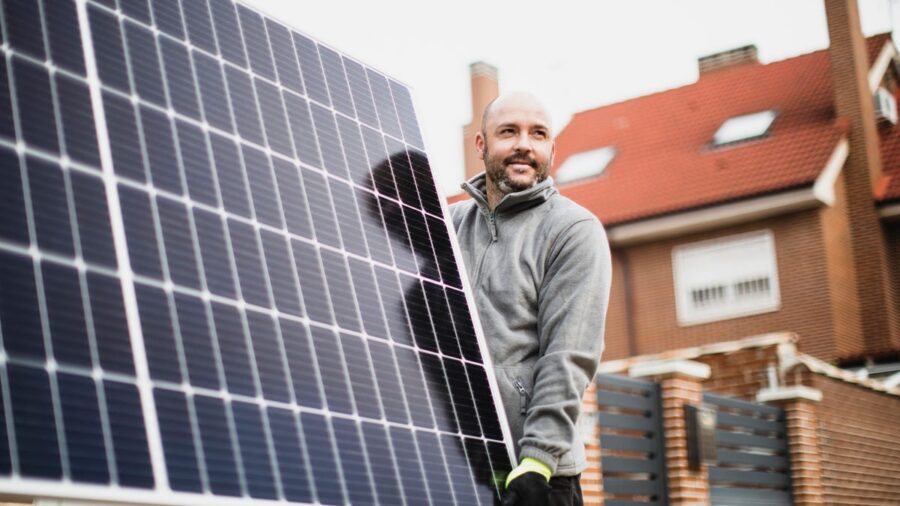
Cash
It is recommended to buy the solar electric system in full. It can cut your electricity cost by between 70 and 100 per cent, based on the size and direction of your roof and local regulations. It usually costs between $15,000 to $20,000. Tax credits are included. Most systems are paid for within five to seven years.
Home Equity Loan
If you’re looking to fund your purchase of solar panels, the most cost-effective solution is to use an equity loan from your home or a line of credit. Since your home is used as collateral, interest rates for these loans are very low (currently between 3 and five per cent). In addition, the interest payments are tax-deductible. The term equity lines vary between 5 and 20 years. They also are characterized by Fixed interest rates. Equity lines come with 10-year terms as well as variable rates of interest (so the interest rate could increase).
Solar Loan
Secured and unsecured solar loans are also available. Your home isn’t utilized as collateral for a loan that is not secured, and the interest paid isn’t tax-deductible. Numerous solar installers cooperate in conjunction with lenders of solar loans. However, you’ll find better rates by contacting banks and credit unions directly. Be wary of excessive charges for origination. When buying a new house or refinancing, Fannie Mae also offers financing for solar system installation through the HomeStyle Energy Mortgage Program.
Benefits of Leasing Solar Panels
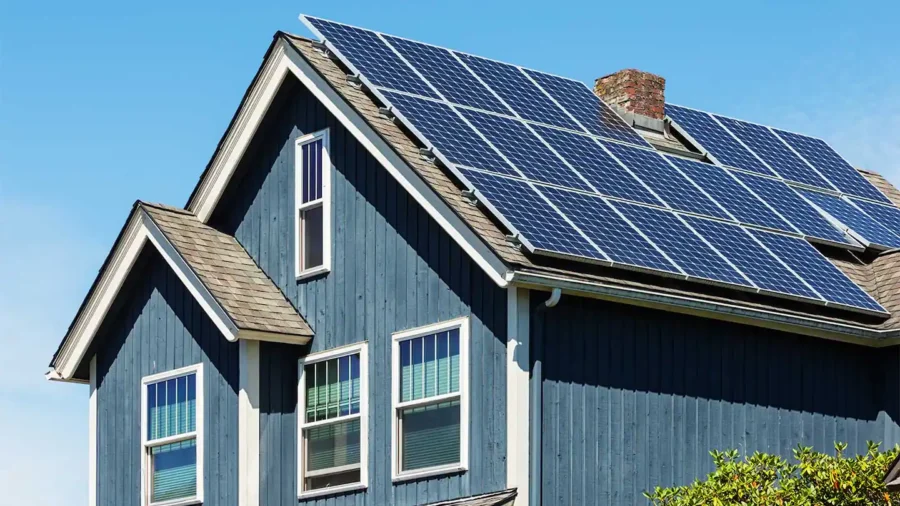
When deciding to purchase or lease solar panels, evaluating the advantages and disadvantages of leasing is essential. There are a few advantages to renting solar panels over buying them panels:
Suitable for those with low tax liability
One of the significant benefits of buying solar panels is that you can get an investment tax credit for renewable energy. Credit (ITC). Therefore even if your tax obligation is minimal, a portion or even all ITC will be lost. On the other hand, taxpayers who are less taxed may get more financial benefits from leasing solar-powered equipment.
Accessible for those with credit issues
Those with less-than-perfect credit can opt for PPAs or solar leases often. It’s much simpler to get a rental of solar equipment than for purchases. In reality, your credit score is often the sole factor.
Offers faster savings
Solar technology purchases are an investment for the long term that can be costly, and the savings might take time to realize. A lease or PPA program will offer immediate savings without an upfront payment or substantial initial cost. Leasing might be the best option if you’re looking to reduce your monthly expenses quickly.
Offers various payment plans
The power purchase agreements (PPAs) plans could provide monthly costs based on variables dependent on the amount of power your solar panels generate. However, based on the energy you use and the amount you consume, a variable monthly price could be more affordable than a regular monthly price. Therefore, it is advisable to research the alternatives.
Disadvantages of Leasing Solar Panels
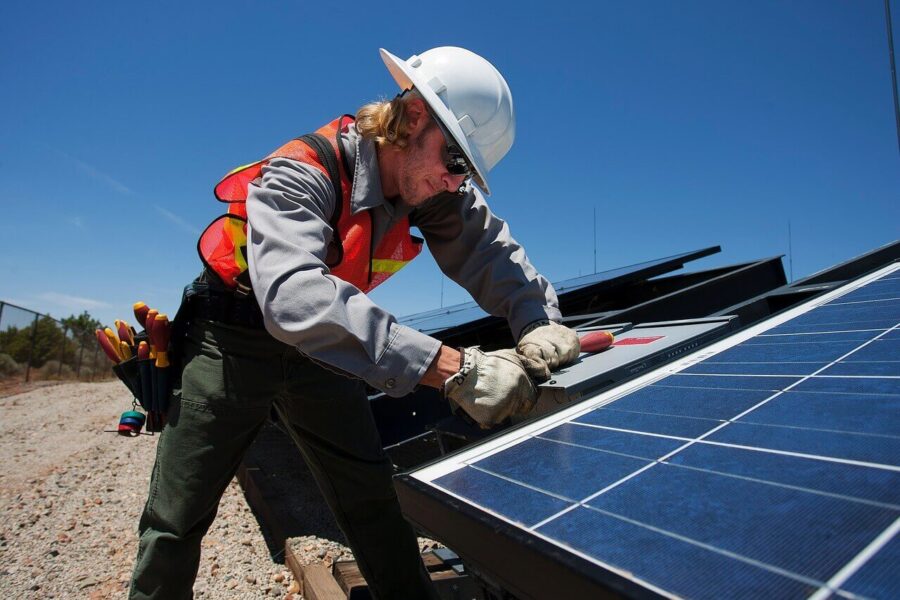
Leasing solar panels come with disadvantages too. Here are a few reasons you might want to buy instead of leasing:
Complicates home selling
The solar panel’s lease, also known as a PPA, can stop the sale of your house. At a minimum, it can slow the process of selling your home and limit the number of buyers.
Limits financial benefits
Numerous solar panel financial incentive programmes require equipment ownership. If you lease, the equipment owner can claim any tax deductions.
Sets a time limit
If you’re looking for an investment for the long term with benefits that will increase with time, purchasing a lease is generally the best choice. If you don’t decide to terminate your lease and resign, you’ll lose the financial benefits once the lease ends. However, you will eventually have the equipment if you pay payments to purchase solar-powered equipment. If you want a long-term energy source, buying is the best choice.
Benefits Of Purchasing solar panels
You keep the tax incentives.
If you have an energy system that is solar and you have a solar energy system, you can take advantage of the many tax benefits available. These incentives can cut down the total cost of solar energy by a significant amount and will make the return on investment (ROI) even higher. In 2023 the Inflation Reduction Act was signed into law in August 2023. This restored the 30 per cent solar tax credit and extended it until 2032.
Easier if you sell
If you own solar panels, they’re easier to gift them to the homeowner who purchases your home when it becomes necessary to dispose of the property. Additionally, solar panels are yours to add value to the house.
Freedom to add or upgrade the system
If you own your solar system, it gives you much more flexibility to expand your outline shortly. For example, suppose you’re considering buying an electric vehicle, putting in a pool, or putting in other things to your house, which could significantly impact your energy usage and costs. In that case, a Solar power system will give the user a lot of freedom to expand on his successes without any cost.
Disadvantages Of Purchasing Solar
Upfront Costs
When you purchase solar panels, regardless of whether you pay cash or take out an ordinary loan, you will usually need to pay a more significant down amount. However, loan terms are constantly changing, and a lot of them come with conditions that are similar to leases. Like every loan, it’s entirely based on the credit scores of your applicants.
When Should You Buy and When Should You Lease Solar panels?
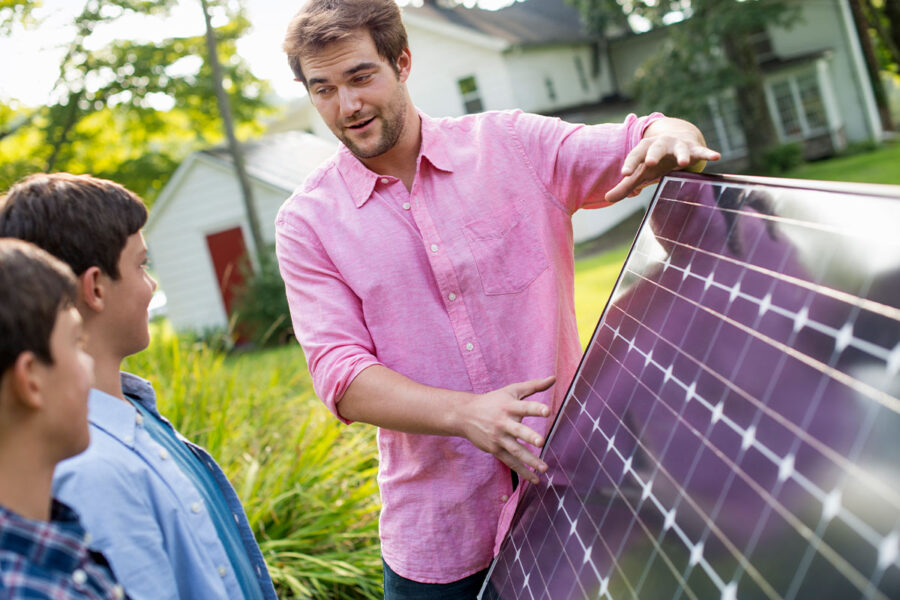
You should invest in solar panels when you have an excellent credit score and a high tax burden and are searching for an investment with a long-term view. On the other hand, if you don’t have an as good credit rating, and you don’t owe a lot in taxes and are looking to save money shortly, you may opt to lease instead.
If you’ve decided to lease solar equipment, you’ll need to determine whether you’d prefer paying an amount per month or a variable amount based on the energy you consume. This will allow you to decide whether to opt for the standard rental or the PPA plan.

